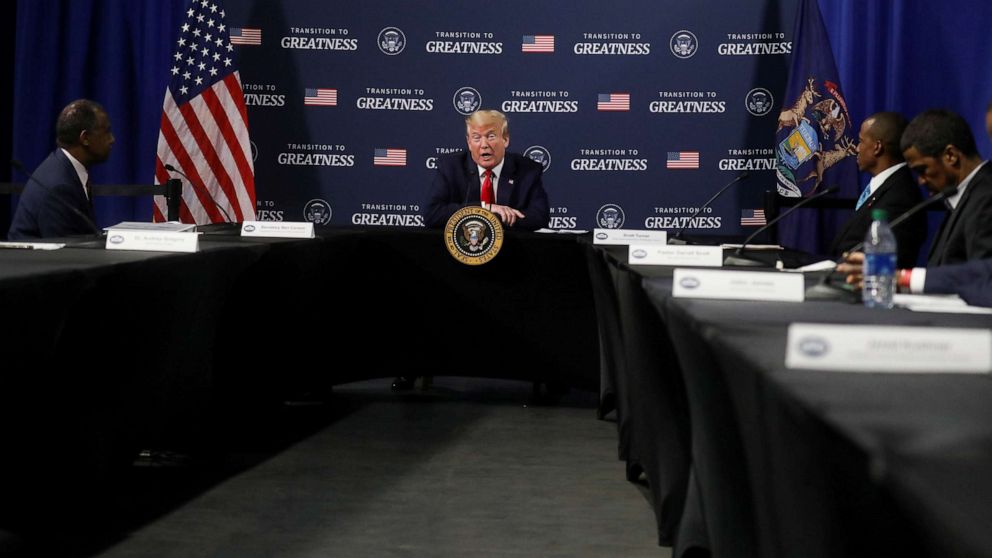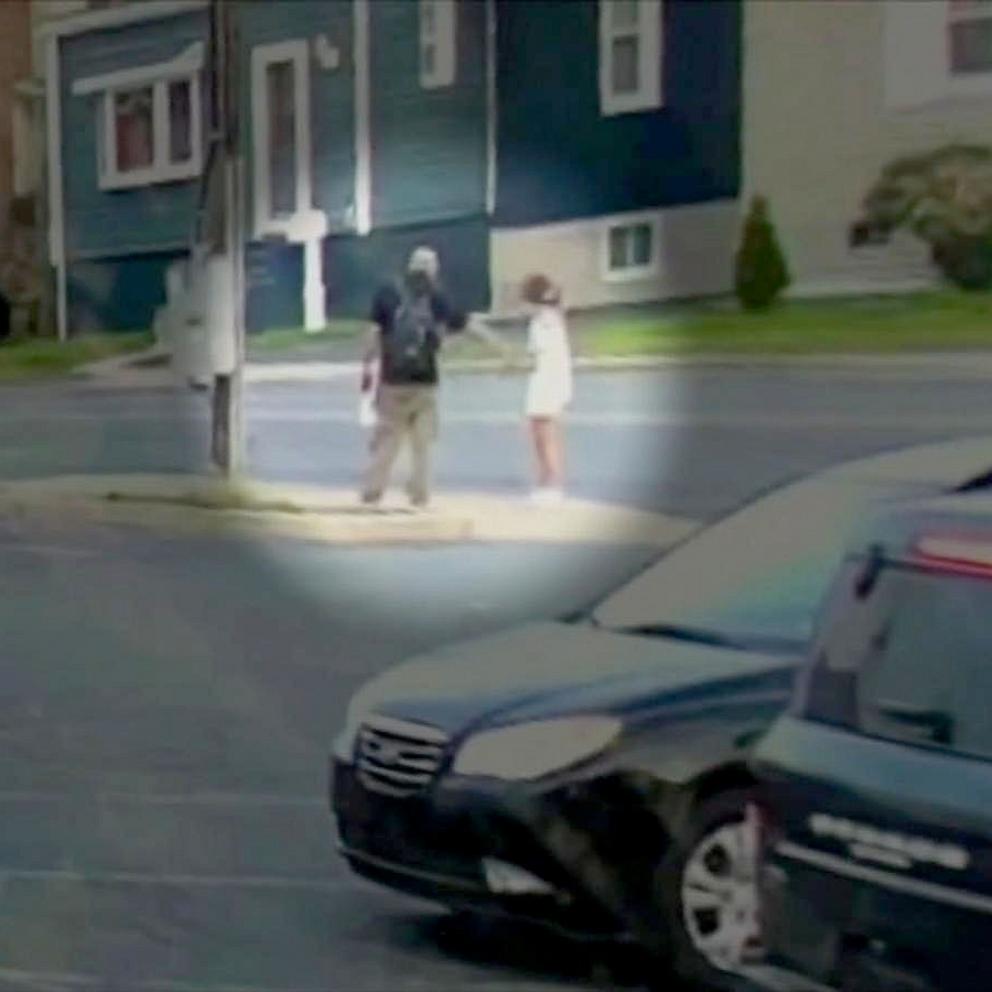Black Americans and Latinos nearly 3 times as likely to know someone who died of COVID-19: POLL
The devastating toll of coronavirus is far-reaching, but the impact of the pandemic is particularly acute among black Americans and Latinos, who are nearly three times as likely to personally know someone who has died from the virus than white Americans, according to a new ABC News/Ipsos poll released Friday.
Thirty percent of black adults and 26% of Latino adults in the country said they know a victim of the coronavirus, who died either from the disease or from complications related to the virus. For white adults, the corresponding figure is 10%.
The findings are consistent with local and national data reported by states and cities and reviewed by ABC News that revealed racial and ethnic minorities suffer a disproportionate share of the negative health and economic outcomes from the coronavirus pandemic.
For example, in New York City, the site of one of the worst hot spots in the country, black Americans and Latinos are two times more likely to be hospitalized and to die from COVID-19 than whites.
In Louisiana, although black residents only comprise a third of the population, they accounted for 70% of the deaths in the state, as of last month.
The new poll, which was conducted by Ipsos in partnership with ABC News using Ipsos’ Knowledge Panel, comes as the death toll approaches 100,000 and confirmed cases of COVID-19 top 1.5 million in the country. All 50 states have at least partially reopened this week, ahead of the Memorial Day holiday weekend, as President Donald Trump continues his push to revive the economy amid the continued risk of the pandemic.

As testing across the country increases and becomes more available, overwhelming majorities of Americans are confident they both know where to get tested and can access testing for the virus.
Among all Americans, 77% said they are confident that they would know where to go for testing if they suspected they had been infected. Additionally, 71% of Americans said they are confident they could get tested if they needed to.
Majorities across racial groups are confident they would know where to go for testing and think they could successfully get tested. However, racial disparities are more apparent when looking at those who express a high level of confidence. Whites are more likely to say they are very confident they would know where to go for testing (46%) than are blacks (29%) and Hispanics (35%). Similarly, whites are more likely to say they are very confident they would be able to get tested (38%) compared to blacks (25%) and Hispanics (25%).
This report is part of "Pandemic – A Nation Divided," ABC News' special coverage of the heightened racial/ethnic and socioeconomic disparities amid the COVID-19 pandemic. Tune into "Nightline" for a three-day series this week, 12 a.m. ET on ABC.
Disparate views on testing confidence also emerge by party affiliation, especially when singling out Americans who said they are very confident about knowing where to go to get tested and having a test administered.
In the latest ABC News/Ipsos poll, only 31% of Democrats and 36% of independents said they are very confident they knew where to get tested for the coronavirus if they needed to be, but 57% of Republicans said the same.
And when it comes to being tested, 29% of independents and 23% of Democrats said they are very confident that they could be tested if needed, compared to 52% of Republicans who said the same.
Trump has repeatedly touted the nation’s testing capabilities, saying the United States has the “best testing in the world” and is “doing more testing than anybody else.” But high profile Democrats have said the opposite, including the Democratic leader in the Senate, Chuck Schumer, whose home state of New York is one of the hardest-hit states throughout this pandemic.
During an interview on ABC’s "The View" Thursday, Schumer said testing "has been one of the greatest failures of this administration” and that he hopes “they learn from it."
The latest survey, capping two months of polling on the coronavirus, shows Trump’s underwater approval hitting a new low, as the country is as uneasy as ever about contracting the disease.

Only 39% of Americans approve of the president’s handling of the crisis - driven, largely, by waning support among independents - compared to 60% who disapprove. Just over one-third of independents (35%) approve of the president’s response to the coronavirus, a dip from one month ago, when 42% of independents approved.
In that same poll, released on April 17, 44% of Americans approved of Trump’s management of the pandemic, compared to 54% who disapproved. His newest marks are also a sharp decline from mid-March when his approval stood at 55%.
Trump’s approval is fiercely split by partisanship, with 7% of Democrats and 89% of Republicans approving of the president, while 92% of Democrats and 11% of Republicans disapprove.
Even as every state moves steadily towards reopening, Americans are not confident that the country is out of the woods when it comes to the deadly virus.
Over three in four Americans are concerned about contracting the coronavirus, while 22% remain not concerned.
Those concerns trace along both racial and party lines. Black Americans (87%) and Latinos (85%) are more concerned about getting the virus than whites (73%), with slightly more than half of blacks Americans (51%) and Latinos (52%) saying they are very concerned about the threat compared to 27% of whites.

Democrats (94%) are far more likely than Republicans (59%) to be concerned about becoming infected, including 51% of Democrats and 20% of Republicans who say they are very concerned.
Still, only 6% of Democrats and less than half of Republicans (41%) say they are not concerned, including only 1% of Democrats and 11% of Republicans who are not concerned at all.
This ABC News/Ipsos poll was conducted by Ipsos Public Affairs‘ KnowledgePanel® May 20-21, 2020, in English and Spanish, among a random national sample of 733 adults, with small oversamples of black and Hispanic respondents. Results have a margin of sampling error of 4.1 points, including the design effect. See the poll’s topline results and details on the methodology here.




